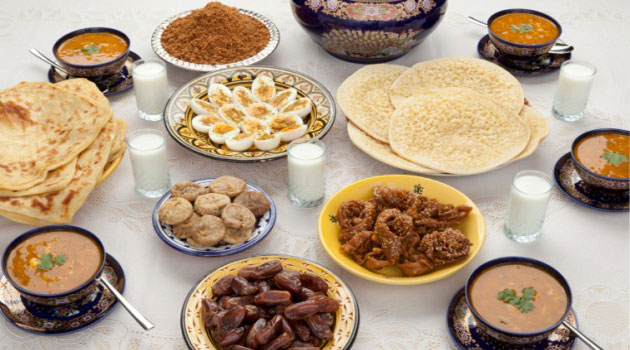 New Delhi:
New Delhi: According to Islamic tradition, Ramzan is considered to be the holiest month in the entire year. Muslims all across the world celebrate Ramzan and observe fasts. One of the most basic ideas behind keeping a roza is to inculcate stoicism and a sense of self restraint.
The one who keeps roza eats before sunrise (Sehri) and then refrains from eating or drinking anything throughout the day. In the evening, people break their fasts after sunset with a meal called 'Iftar'. Iftar is a feast which people look forward to after the day's long restrain.
It is taken right before the Magrib prayer (the evening prayer). Traditionally, one is supposed to eat dates along with juice, milk or water. It is believed that Prophet Mohammad ate three dates when he broke his roza.
Iftar meals bristle with varied delicacies. From rich mutton curries to lovely desserts and cooling sherbets, it is interesting to see how every country cooks up something exclusively wonderful. Muslims in Afghanistan relish traditional soups and onion based meat curries, kebabs and pulao whereas our neighbouring countries like Pakistan and Bangladesh have jalebis, haleem, sweetened drinks, parathas, rice preparations, meat curries, fruit salads, shami kebabs, piyajoo, beguni and many other mouthwatering dishes that adorn the iftar menu. In India, Haleem and Harees are some of the much-loved meaty dishes. The Hyderabadi Haleem is very popular across the globe. Muslims in Kerala and Tamil Nadu break their roza with nonbu kanji, a dish prepared with meat, veggies and porridge.
Iftar meals and the traditional Ramzan dinners are exquisite and elaborate. Consuming rich meaty dishes, hearty biryanis and those irresistible desserts after a long day of abstaining from food may take a toll on your digestive system and cause stomach bloating. Here are few health tips that you should cling to -
Do not mix fruits with your meals: Break your fast with fruits or consume them after you are done with your meals. Fruits when combined with minerals, fats and proteins present in other foods, can hinder digestion.
Do not combine cheese with nuts and seafood with other meat: Your body is programmed to digest one concentrated form of protein at a time. Consuming more than one can create complications in your digestive system.
Avoid combining citrus foods with milk based foods: Acidic acid curdles milk which can upset your stomach. Proteins and starch together is also not a great idea. If you are planning to gorge on a feast full of lean meat, try balancing it out with some fresh veggies.
Take it easy: Do not be in a hurry to finish your food. If your body receives too much of food all of a sudden after being deprived of it for an entire day, it may lead to indigestion and other gastric problems. Start with some fruits, yogurt, lots of cooling fluids like sherbets or smoothies and then go on to relish your main course after a while. This will give your stomach some time to process and will ensure proper functioning.
Here's for you, the best of our festive recipes to break your fast with. Go ahead and lay out a gourmet spread!
Source Ndtv
 New Delhi: According to Islamic tradition, Ramzan is considered to be the holiest month in the entire year. Muslims all across the world celebrate Ramzan and observe fasts. One of the most basic ideas behind keeping a roza is to inculcate stoicism and a sense of self restraint.
New Delhi: According to Islamic tradition, Ramzan is considered to be the holiest month in the entire year. Muslims all across the world celebrate Ramzan and observe fasts. One of the most basic ideas behind keeping a roza is to inculcate stoicism and a sense of self restraint. 